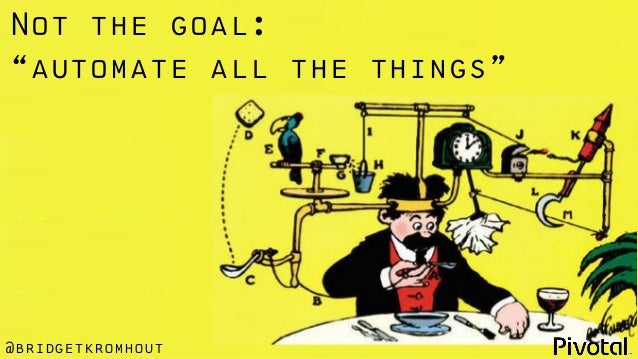I'm one of the organisers for NottsTest, and certainly one of the biggest challenges isn't venue or beer or pizza. It's content. You're asking people to give up their time to prep, rehearse, travel and deliver content for free to (mostly) strangers.
November was easy though. We'd agreed in August that our hosts were providing a talk in November - a retro on implementing Modern Testing as practice across all of Engineering. This was a follow-on from the talk their Head of Engineering had given in early summer on his plans to kick it all off.
Then things got tricky. Our host felt it was in bad taste to be championing cutting-edge new practices whilst people's jobs were at risk.
We weren't going to get another speaker with ~2 weeks to go, and neither of the organisers had one up the sleeve that we could roll out / recycle. We switched the session to lightning talks, but gave ourselves wiggle room with a backup option of Lean Coffee if lightning talks weren't working. We needn't have bothered - lightning talks were a cracking success!
The Talks
First, I spoke about The Unusual Value of Testing, an experience report from the week, where demoing an API test against a mock API that was validating against a JSON Schema led to other members of the team taking the idea further, applying the same validation on the real implementation of API, moving the API to ReadyAPI and generating the schema automatically, and generating the entire UI form structure from the same JSON Schema along with validation to match. This made the test entirely redundant, since we could be certain (within reason) that the contract that the schema was enforcing was going to be honoured throughout.
— Christian Legget (@ChristianLegget) November 7, 2018
Next, Dave Rutt spoke about procrastination, that it's not a laziness, but a scientific inevitability when faced with more time to perform a task than is needed. If you've got 9 months to build a product, you'll procrastinate because you've got loads of time, your monkey brain finds you more entertaining/engaging tasks to do, and your limbic system never gets engaged. If you've got 2 weeks to deliver an iteration, you'll get on with it. Defeat your monkey brain with agile!
@rutty_uk is talking about procrastination. He's got a book about it, but hasn't finished it, due to procrastination. pic.twitter.com/fdm8vtTnxh— Notts Testers (@NottsTest) November 7, 2018
Third, Keith spoke about hashing. Not that kind of hashing. Nope, not that kind of hashing either. This was about an athletic activity! Hashing is a collaboration of a team to complete a run with a lot of dead ends and false trails. The idea is that the team complete the run together, not that the fastest runner completes first, so for example, the fast runner could run ahead and scout dead ends.
A short talk about ‘hashing’ by Keith. A very interesting non-IT talk! Like the sound of the guy who collects the money: Hash Cash pic.twitter.com/3thTsL9OBt— Notts Testers (@NottsTest) November 7, 2018
Next came Christian with an announcement on behalf of Ministry of Testing and the Software Testing Club. The Software Testing Clinic is starting in Nottingham, offering peering and mentoring with other testers on specific skills, all for zero pounds of your money. I'm looking forwards to trying this format out, and reckon this should be a great complementary event to NottsTest!
@ChristianLegget giving us a short introduction to the first upcoming (Mentor-centred) Software Testing Clinic that’s coming up later this month, then proper clinics happening in the new year pic.twitter.com/0rxjgy7eZA— Notts Testers (@NottsTest) November 7, 2018
Penultimate talk was by George, who spoke about the feeling of being secure on the internet, and why you're wrong. He spoke about the recent site that demonstrated being able to see personal info from an Incognito Window, and promised a fuller talk & demo in the future.
Next up: George is talking to us about privacy online. Check out https://t.co/IuvUXAjK2k pic.twitter.com/6pAAyiDBox— Notts Testers (@NottsTest) November 7, 2018
Lastly, I had another shot at a lightning talk, this time about being Five Out Of Five, what keeps me there, the Nine Kinds Of Motivation, and why everyone should do something that motivates them. This generated a lot of discussion, so we're considering running an entire evening on careers, CVs, interviews and even the awkward topic of tester salaries!



